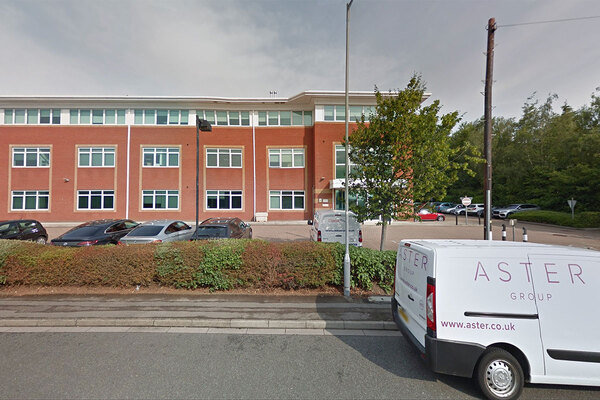You are viewing 1 of your 1 free articles
We need to talk about Kevin
Kevin Rodgers talks tough on the green belt as chair of the West Midlands Housing Association Partnership. Gavriel Hollander finds out what he’s planning. Photography by Edward Moss
On a recent investor roadshow to drum up support for WM Housing’s £275m bond issue, chief executive Kevin Rodgers was given an unusual compliment.
“One of the investors called us ‘vanilla’,” recalls Mr Rodgers. “He said, ‘you’re a bit bland, aren’t you? That’s OK, we like bland. It’s safe, it’s secure; it means we can invest and don’t have to worry’.”
The former auditor and PwC accountant may not mind being called vanilla, but looking back at the two-and-a-half years since he took the helm at the 30,000-home housing association, ‘bland’ isn’t the word that comes to mind.
This year alone, besides the aforementioned bond issue, which leaves the group with a rump of bank debt from three long-standing lenders – RBS, Santander and Barclays – there has also been a painful regulatory downgrade, a series of reversals of government housing policy to absorb, and of course the tragedy of Grenfell Tower.
That’s plenty for any chief executive to be dealing with. For Mr Rodgers, whose housing association is one of the biggest in the West Midlands, there’s been an additional item on the agenda around the increased devolution that is coming, bit by bit, to the region.
The West Midlands Combined Authority was set up in June 2016, with a metro mayor – in the surprise form of Conservative Andy Street – arriving a year later.
“I cannot see a realistic prospect of the West Midlands hitting its ambitious numbers on housing supply without building on some part of the green belt"
Then there is the nebulous concept of the Midlands Engine – the brainchild of former chancellor George Osborne, which is intended to bring investment to the Midlands, as well as the small matter of 600,000 new homes over 15 years.
Mr Rodgers himself is chair of the West Midlands Housing Association Partnership (WMHAP), a body set up last year to support and influence the combined authority. And while he is clearly enthused by the possibilities that regional devolution brings, he is not one for believing the hype around the Midlands Engine, which he admits is “something that I don’t really understand”.
“There’s an ambitious series of plans and priorities within the Midlands Engine documents,” he adds, when asked about the 600,000 new homes aspiration. “But we’re focused on the West Midlands. We looked at the combined authority’s strategic plan and if you’re a social housing business you can only say this is what we want to happen in the West Midlands, too. We looked at their priorities and realised these are our priorities, too.”
One of those priorities – indeed the first highlighted by the new metro mayor – has been to tackle street homelessness, with Jean Templeton, chief executive of youth homelessness charity St Basil’s and another member of the WMHAP, leading a mayoral taskforce.
Mr Rodgers sees that appointment as an early sign of the success the partnership has had in terms of influencing local politics. “From that first day we knew the mayor and his team were prepared to listen to what housing associations had to offer,” he explains.
When it comes to matching some of the ambitious plans for development in the region, however, Mr Rodgers is perhaps a little more cautious. He admits there is a disconnect between aspirational housing targets set by central government and commitments that local politicians continue to make about protecting the green belt.
“Each of the local authorities have their own challenge where they all need more housing but there are very few places that their constituents want homes to be built,” he elaborates. “I cannot see a realistic prospect of the West Midlands hitting its ambitious numbers on housing supply without building on some part of the green belt.
“Politically – nationally and locally – it’s an incredibly difficult argument. Most of the MPs in the region made election promises that they’d protect the green belt. [But] it’s hard to see how we’re going to increase housing supply without making difficult decisions about where they’re built.”
That said, WM should see its own development programme ramp up in the near future. It plans to use some of the extra capacity delivered by the successful bond issue to grow a programme which the chief executive admits has been fairly modest historically, running at around 200 to 250 homes a year. He hopes that will increase to 500 from 2019, half of which will be for social or affordable rent. The return to the old Consumer Price Index plus 1% rent-setting formula from 2020, reversing Mr Osborne’s shock rent cut of two years ago, has given Mr Rodgers “a lot more certainty” that this increase in development is deliverable.
That certainty seemed some way off when Mr Rodgers stepped into the chief executive office for the first time in May 2015, having spent 13 years as finance director, initially at Whitefriars, before it became part of the group that would one day be WM, in 2008.
The Coventry local, who himself grew up in social housing in the city’s Hillfields area, in fact officially took over from long-time incumbent Pat Brandum in the week of the 2015 election. When a few weeks later the new Conservative government shocked the sector by announcing a four-year rent cut, Mr Rodgers was all set to address his first board away day. In a typically understated way, he admits that it “wasn’t the best timing”.
“We were in the away day talking about plans, aspirations and ambitions, as my phone started beeping saying George Osborne’s announced a four-year rent cut. We spent most of the afternoon not talking about the grand vision of the bright future. It became about how we’d respond.”
It’s a typically phlegmatic response from the former auditor, who trained as an economist. Perhaps it comes from a life spent following the precarious fortunes of Coventry City (a signed photograph of Keith Houchen’s flying header from the 1987 FA Cup Final has pride of place on his wall) but little seems to faze Mr Rodgers.
"My phone started beeping saying George Osborne’s announced a four-year rent cut...It became about how we’d respond."
Even the recent regulatory downgrade from the Homes and Communities Agency (HCA) from G1 to a still-compliant G2 – which found that the landlord failed to offer enough protection for residents when they were evicted from a temporary housing scheme – is something he is happy to tackle head-on.
Mr Rodgers accepts that the incident was an example of what he describes as “management failure”. He continues: “Had we thought more carefully about things that could go wrong in terms of eviction, then we may have spotted that in that one hostel in Coventry the number of people being served eviction notices was higher than we would have expected.
“As soon as we found an issue, our own review showed it was probably a breach of the tenancy standard because we hadn’t complied with our own agreement so we weren’t surprised the HCA issued a regulatory notice.”
The chief executive is equally forthright when discussing the aftermath of the Grenfell Tower fire – an event with particular resonance for an association that manages 40 high-rise tower blocks. Mr Rodgers says it was “an awful thing to wake up to”, adding that fire safety has “always been an issue that keeps us awake”.
"We weren’t surprised the HCA issued a regulatory notice.”
Within 48 hours of the fire, the association was reassuring its tenants about fire safety procedures in their blocks. WM also confirmed within hours that none of their blocks used the cladding that caused the Grenfell fire to spread so rapidly.
Indeed, two weeks after Grenfell, there was a fire on the 22nd floor of one of WM’s tallest high rises, in Birmingham. “The fire service was on site within minutes, put the fire out and there was a safe and orderly evacuation of the block,” says Mr Rodgers with a mixture of pride and relief.
Despite what – from an outsider’s point of view – has been an apparently whirlwind introduction to his time as a chief executive, Mr Rodgers does not think the past two years has been any busier than usual.
“In all my years in housing, going back to the late 1990s, we’ve said ‘what a busy 12 months; hopefully it’ll be quieter next year!’ We’ve always had to deal with competing priorities. I really don’t think we’ve seen anything in the past few years we haven’t seen before.”
So what next? In the immediate future, Mr Rodgers is completing the last of 33 staff roadshows to outline where he wants to take the group. He believes that being a local boy made good “might give me a bit more credibility” at such events. But how would he describe his own style as a chief executive?
As expected, his answer is self-effacing: “My aspiration is to employ really good people and get out of their way.”











